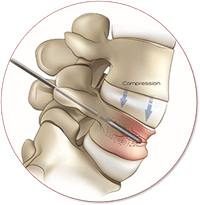
Through advanced technology, experience and clinical research, the Center for Spinal Disorders is discovering new and effective surgical and non-surgical ways to care for the spine. Spine surgeons at IU Health and Indiana University School of Medicine are dedicated to providing both non-surgical and surgical treatment options for patients. Our faculty spine specialists have a unique understanding of how the bones of the spinal column not only support the back but also protect the delicate, innervated spinal cord.
The mission of the center is to serve patients and their caregivers through education, treatment and research on spine conditions, delivering unmatched and expert care. As the only spine program in Indiana affiliated with an academic institution, the center continuously strives to lead in the research and utilization of multidisciplinary approach to treatment options that get our patients back to a better quality of life.
